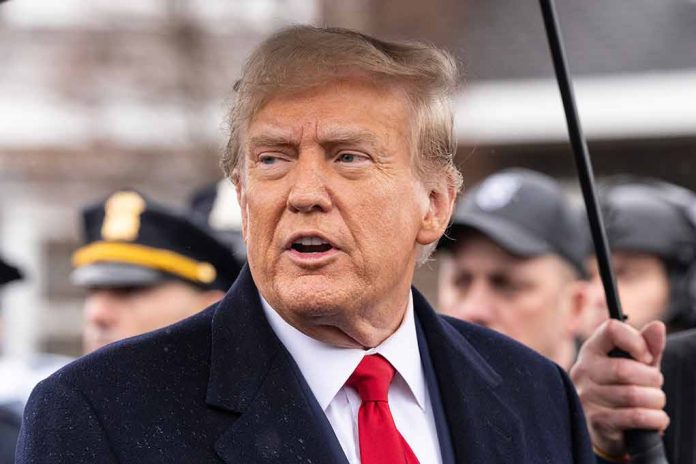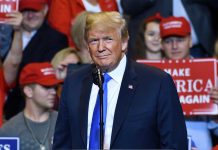
The Biden Department of Justice has chosen to defend former President Donald Trump in an ongoing legal battle centered around the forceful removal of Black Lives Matter protesters from Lafayette Square in June 2020. This unexpected move has caught many by surprise, highlighting complex issues surrounding executive power and civil liberties.
According to Politico, DOJ attorneys argue that Trump was acting within his presidential duties during the incident. This defense has raised eyebrows, given the polarized political climate and previous criticism of Trump’s actions during the protests. The decision underscores the non-partisan nature of certain legal proceedings irrespective of the current administration.
In 2020, law enforcement cleared Lafayette Square using smoke canisters and pepper balls, leading to widespread accusations against Trump. The former president was preparing for a photo op where he crossed the park holding a Bible. The lawsuit alleges Trump ordered law enforcement to forcibly remove the protesters, claiming he is liable for battery, assault, and other allegations.
NEW: Justice Department steps in for Trump in suit over police forcing BLM protesters out of Lafayette Park in June 2020. Feds will assume his defense and any financial liability after determining allegations relate to his official duties. w/@kyledcheney https://t.co/7VrryQYh4U
— Josh Gerstein (@joshgerstein) August 20, 2024
Legal Intricacies and Historical Precedents
The case sheds light on the broader implications of presidential actions and their legal boundaries. DOJ filed a motion to dismiss claims against Trump, aiming to replace him as the defendant. If successful, Trump would avoid liability and potential damages from the lawsuit, raising further questions about legal accountability for presidential actions.
Supreme Court rulings indicate that presidents have broad criminal immunity for official acts, complicating the evaluation of Trump’s actions during the Lafayette Square incident. This legal protection often extends to various civil suits, as seen in the previous attempts to defend Trump.
“On the basis of the information now available … I find that Donald J. Trump was acting within the scope of federal office or employment at the time of the incident out of which the plaintiffs’ claims arise,” wrote James Touhey Jr., head of the Torts Branch in DOJ’s Civil Division.
Recent Developments and Settlements
The Lafayette Square case has been slow-moving, largely due to the intricacies involved. Initially, Trump was named in his official capacity, but a judge allowed plaintiffs to amend the suit to seek personal damages. DOJ settled parts of the Lafayette Square suits in 2022, agreeing to policy changes aimed at protecting protesters. This settlement marked a major turning point, influencing subsequent legal proceedings.
Quote + Citation Link
“As part of the settlement, the USPP and the Secret Service have ‘agreed to update and clarify their policies governing demonstrations, and to implement the policy changes within 30 days of today’s settlement,’ per a Department of Justice statement.”
The ongoing legal defense by the Biden DOJ highlights a complex dynamic in maintaining non-partisan legal standards while addressing significant national events. With the Justice Department’s backing, Trump’s actions are scrutinized within the legal framework established for presidential conduct, emphasizing the delicate balance of executive power and civil liberties.
Conclusion
The Biden DOJ’s defense of Trump in the Lafayette Square case illustrates the challenging nature of legal precedents involving presidential actions. This case, along with its associated legal settlements and motions, will likely set important precedents for future administrations, ensuring that executive actions are held to rigorous legal scrutiny while maintaining civil liberties.
As the case progresses, it remains a critical barometer for the evolving view of presidential accountability in the United States.













